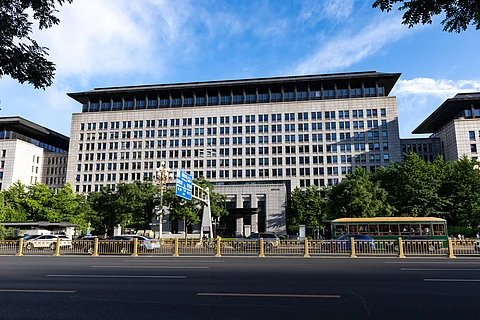

Tensions between the United States and China escalated on Monday as China’s Ministry of Commerce accused the Trump administration of violating the trade truce agreed to last month in Geneva. The truce, which implemented a 90-day pause in escalating tariffs, had temporarily reduced tariffs to 30% for Beijing and 10% for Washington.
In a statement addressing the trade talks, China charged the U.S. with actions that “seriously undermine the existing consensus reached at the Geneva economic and trade talks, and seriously damage China's legitimate rights and interests.”
At the heart of China's criticism are recent export controls imposed by the Trump administration, which target artificial intelligence (AI) chips and software essential for chip design. Additionally, the U.S. Commerce Department has issued guidance warning American companies against using chips, components, or software developed by Chinese firms, citing national security concerns.
Beijing argues that these measures contravene the spirit of the Geneva agreement and are designed to curtail China's technological development.
Further straining the relationship, the Trump administration announced last week it was revoking the student visas of approximately 275,000 Chinese nationals currently studying in the United States. This sweeping decision has provoked outrage in China and added to the growing list of grievances between the two nations.
While the U.S. has accused China of not following through on certain pledges, China notes that it has yet to remove some of its own export controls on goods bound for the U.S., still requiring government approval for each shipment.
On Thursday, U.S. Treasury Secretary Scott Bessent acknowledged that trade negotiations with China had "stalled." He suggested that a direct conversation between President Donald Trump and Chinese President Xi Jinping may be necessary to revive the talks.
However, on Friday, President Trump escalated tensions further with a post on Truth Social, accusing China of breaching the truce and claiming that the U.S. had only agreed to the pause because China’s economy was “collapsing.”
The truce, signed on May 12, is set to expire in mid-August. If no new agreement is reached by then, tariffs will automatically revert to pre-truce levels—145% on Chinese goods and 125% on U.S. goods—raising the specter of renewed economic confrontation between the world’s two largest economies.
With both sides digging in and political rhetoric intensifying, the fragile détente now appears increasingly uncertain, casting doubt on the potential for a comprehensive trade agreement anytime soon.